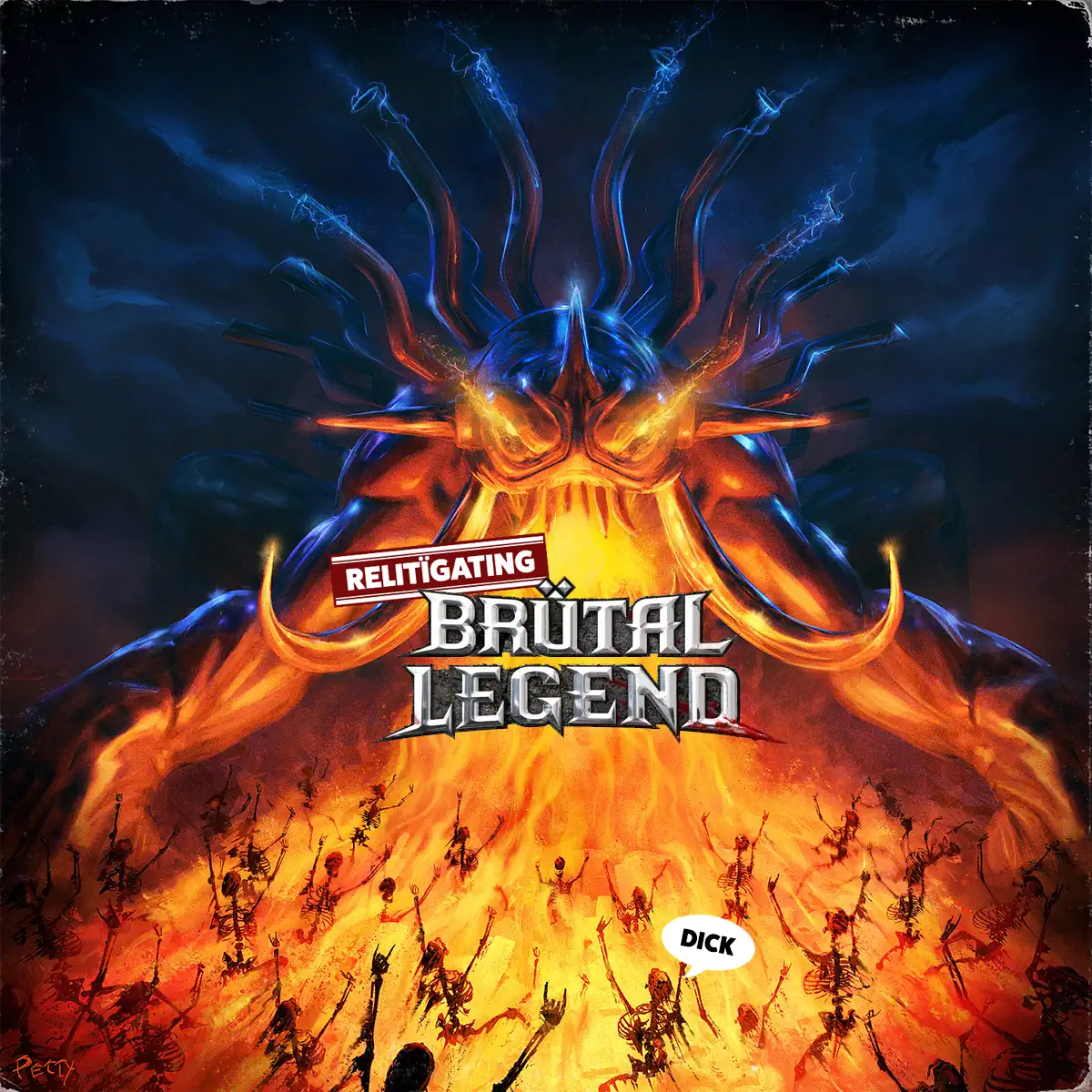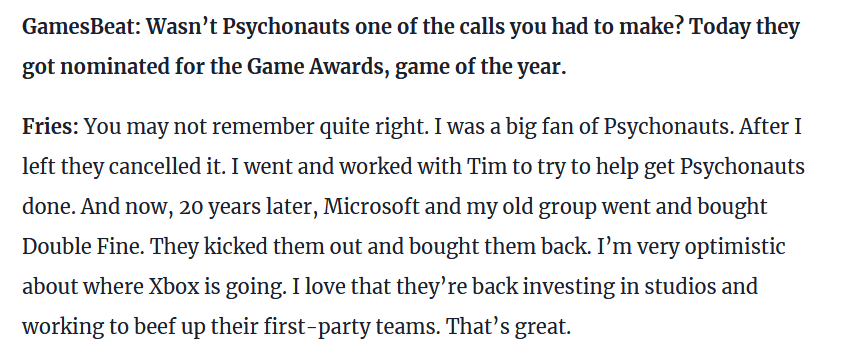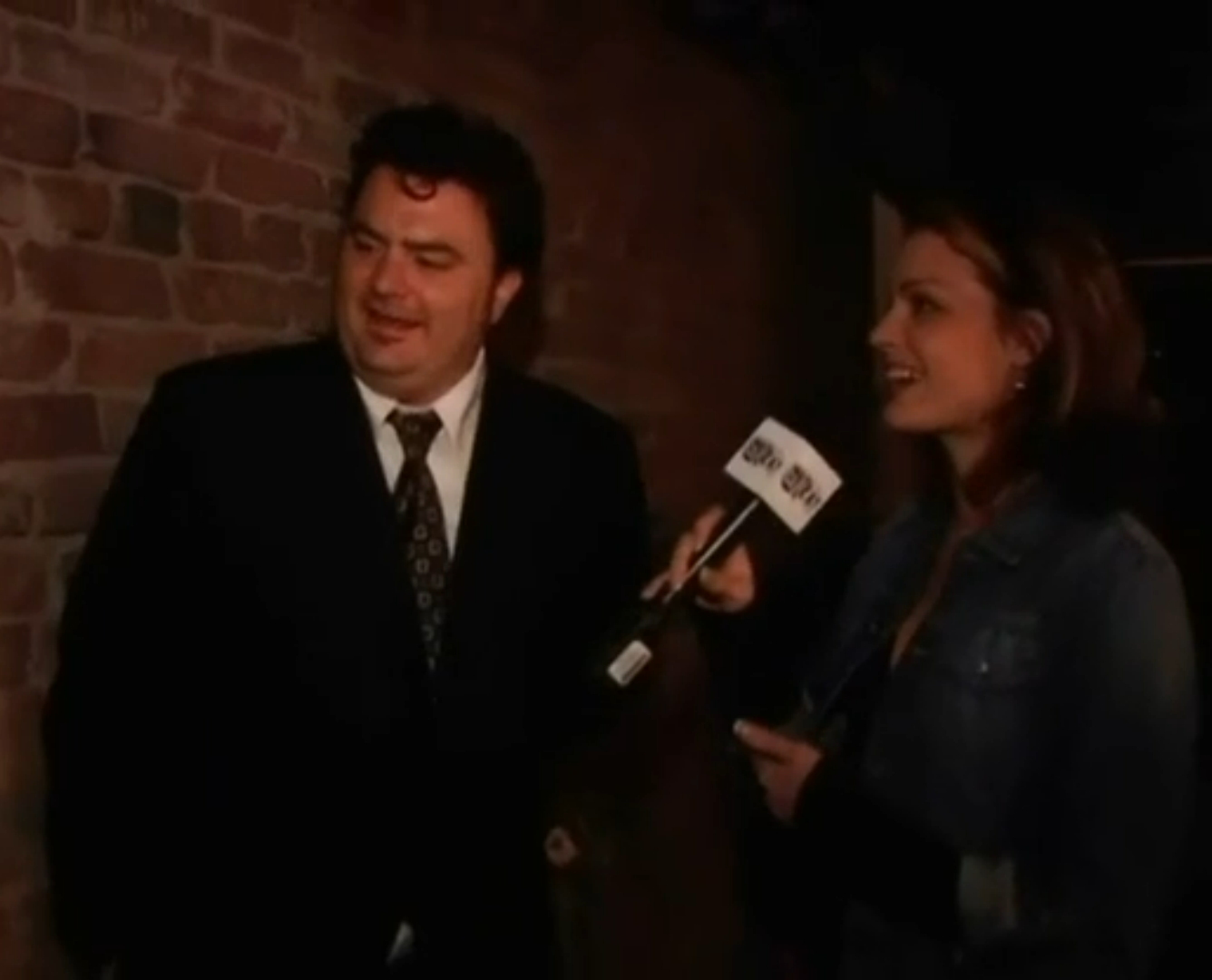Articles

Relitigating Brütal Legend Page One
It’s still a bit staggering to reflect that Double Fine Productions existed for a miraculous twenty years as an independent development studio before its acquisition by Microsoft in 2020. Even in hindsight, one marvels at how the company ever sustained its sovereignty over such a period. It’s become part of Double Fine’s identity that the joys and difficulties that went along with the accomplishment are not shrouded in secrecy, nor are we exactly innocent of their documentation. Indeed it all began right from the double-headed baby's crib with Double Fine’s first and perhaps still flagship game, Psychonauts.
Originally signed by Microsoft as part of the spate of earliest exclusives for the newly unveiled Xbox in 2001, Psychonauts was as much as anything the beneficiary of Ed Fries, then the Vice President of Game Publishing and a key figure in the console’s development. Fries stressed the importance of visionary third-party games to bolster the early catalogue, and he found himself a rapt audience member when Tim gave a talk at the Game Developers Conference. By all accounts Psychonauts’ principal champion within Microsoft, the well-liked veteran eventually resigned in January 2004 after eighteen years with the company, diplomatically alluding to constraints on his freedom.
···

···
By that time, Psychonauts had probably exhausted any prevailing goodwill that may have lingered within the publisher’s walls beyond its influential cheerleader. Its projected fourth quarter 2004 release represented a gradual but drastic slip from its original 2002 target. At the end of March 2004, pretty much nine seconds after Tim had given a panel on the game’s character design at GDC (Footnote: And where he also debuted a new trailer that, strangely, would end up not being seen publicly until many years after the fact. A rather different trailer would appear late in the summer of 2004 to accompany the game’s re-announcement under Majesco.), Microsoft elected to drop the title.
Here at Mojo, the news completed a ruthless one-two punch, as the cancellation of Sam & Max: Freelance Police had occurred earlier that same month. Where the fates of the two discarded games diverged lay in Double Fine’s independence: It retained the IP of Psychonauts, and Microsoft was to its credit publicly supportive of the studio’s efforts to shop their title around for a new home.

After about six months of Tim meeting payroll by the skin of his teeth and/or personal loans, the orphaned game found its happy ending when it landed a new publishing deal with Majesco; the game ultimately shipped under its aegis in April 2005. That near-five-year development put Psychonauts, once meant to be not far off from a launch title, at the tail end of its console generation, the promotional campaign for the succeeding Xbox 360 being well underway by then. It all ended up being the best possible outcome for the quality of the game, which added PC and (less creditably) PlayStation 2 to its original target platform, but Majesco was not rewarded for its gamble: the game’s soft performance in the immediate term contributed to the publisher’s retreat from the AAA space. Nevertheless, the game had legs – when the publishing deal with Majesco eventually expired around 2012, Double Fine was free to self-distribute Psychonauts, and the steady sales accrued from its revival through digital outlets over the term of this afterlife converted a cult classic into a legitimate commercial success, ultimately justifying a sequel somehow even more ambitious and expensive in 2021.
But while finally shipping Psychonauts must have felt like a herculean accomplishment for the studio, the tribulations of its outsized production didn’t pan out to be as exceptional as might have been reasonably predicted.